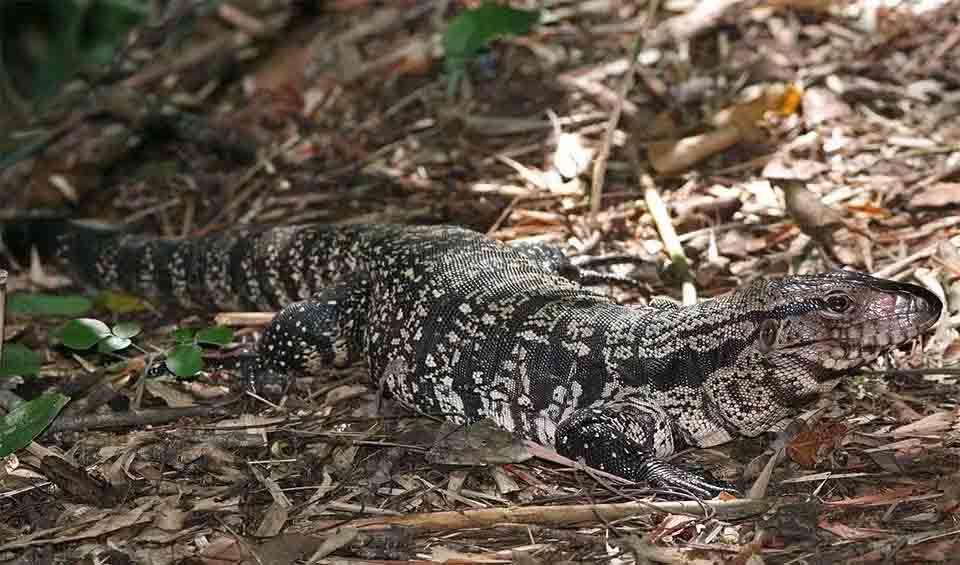A large, intelligent lizard that is native to South America. Known for its striking appearance and impressive adaptability, this tegu is a popular pet in the United States.
The Argentine black and white tegu is one of the largest species of tegus. Some individuals can grow even longer, with exceptional specimens reaching up to 5 feet. These lizards have a robust, muscular build, with a broad head and powerful limbs. As their name suggests, Argentine black and white tegus have a distinctive black and white pattern across their bodies. Their skin is covered in small, bead-like scales that give them a rough texture. The pattern can vary, with some individuals having more pronounced black bands while others have a more speckled appearance. Juveniles often have bright green heads that fade to black as they mature.
In the wild, Argentine black and white tegus are found in a variety of habitats, including forests, savannas, and grasslands. They are native to countries such as Argentina, Brazil, Paraguay, and Uruguay. These lizards are highly adaptable and can thrive in diverse environments, from humid rainforests to arid scrublands. They are excellent diggers and will create burrows for shelter, which they use to escape extreme temperatures and predators.
Distribution
 Argentina
Argentina Bolivia
Bolivia Brazil
Brazil Paraguay
ParaguayAnything we've missed?
Help us improve this page by suggesting edits. Glory never dies!
Suggest an editGet to know me
Terrestrial / Aquatic
Altricial / Precocial
Polygamous / Monogamous
Dimorphic (size) / Monomorphic
Active: Diurnal / Nocturnal
Social behavior: Solitary / Pack / Herd
Diet: Carnivore / Herbivore / Omnivore / Piscivorous / Insectivore
Migratory: Yes / No
Domesticated: Yes / No
Dangerous: Yes / No




